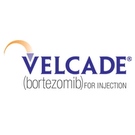Articles tagged with: Meeting Update
News»

A recent study suggests that relapsed/refractory myeloma patients with abnormal plasma cells in the blood prior to therapy have a more aggressive form of multiple myeloma. Furthermore, the study authors speculated that if the number of abnormal plasma cells did not decrease following one cycle of therapy, it may be indicative of treatment resistance.
These findings were presented at the European Hematology Association (EHA) meeting in Barcelona, Spain, last month.
Multiple myeloma is a disease characterized by abnormal plasma cells. Plasma cells are typically located in the bone marrow, but they can …
News»

The results of a study comparing the outcomes of multiple myeloma patients receiving Velcade as part of their initial therapy suggest that certain chromosomal abnormalities influence patient responses to Velcade. The results also indicate that Velcade may be particularly effective in delaying progression of myeloma in patients with chromosomal abnormalities.
The findings were presented at the European Hematology Association (EHA) meeting in Barcelona, Spain.
The study aimed to shed light on the controversial issue regarding appropriate initial therapy regimens, also known as induction therapy, for multiple myeloma patients with high-risk chromosomal abnormalities. …
News»

A recent study reported that long-term surviving myeloma patients are generally younger and have received and responded well to treatment with conventional chemotherapy. Dr. M. Kraj of the Institute of Hematology and Transfusion Medicine in Warsaw, Poland, presented the findings at the European Hematology Association (EHA) meeting in Barcelona last month.
Dr. Kraj and her colleagues aimed to identify common clinical and laboratory features in long-term surviving myeloma patients, as these may assist physicians in determining an accurate prognosis for other patients.
The researchers analyzed data of 600 myeloma patients diagnosed before …
News»

The results of a recent study suggest that donor stem cell transplants may not be necessary as part of first line therapy for newly diagnosed multiple myeloma patients. These findings were presented at the recent European Hematology Association (EHA) meeting held in Barcelona, Spain.
Despite its frequent use in the treatment of multiple myeloma, stem cell transplantation remains a risky procedure with many possible complications.
Patients can either receive their own stem cells during this procedure (autologous stem cell transplant) or receive the stem cells from a healthy donor (allogeneic stem cell …
News»

Maintenance therapy with thalidomide (Thalomid) improves progression-free survival of multiple myeloma patients but has no impact on overall survival, according to a recent study. Additionally, patients with an aggressive form of myeloma show no benefit from this treatment. The findings were presented by Dr. James Child of the United Kingdom’s Clinical Trials Research Unit at the European Hematology Association (EHA) annual meeting in Barcelona on June 13.
Maintenance therapy is long-term, often low-dose and continuous, treatment given to prevent relapse in myeloma patients who have achieved remission. Until recently, use of …
News»

At the 15th annual European Hematology Association (EHA) meeting, held June 10 to 13 in Barcelona, Spain, physicians and researchers gathered to share developments in the field of hematology, including multiple myeloma.
The research presented at the meeting covered all areas of hematology, which is the study of blood, blood-forming organs, and blood-related diseases. Due to the broad number of interests and studies, the meeting was divided into different sessions over the course of the four days, with most of the multiple myeloma sessions being held on the first three days. …
News»

Preliminary results from a Phase 1 clinical trial suggest that everolimus (RAD001), in combination with Revlimid (lenalidomide), may have potential in the treatment of relapsed/refractory multiple myeloma. The findings were presented on June 4 at the American Society of Clinical Oncology (ASCO) annual meeting.
Everolimus is marketed by Novartis under the brand name Afinitor for the treatment of advanced kidney cancer and under the name Zortress to prevent kidney transplant rejection. Everolimus is currently being investigated as a potential treatment for multiple myeloma, and …
